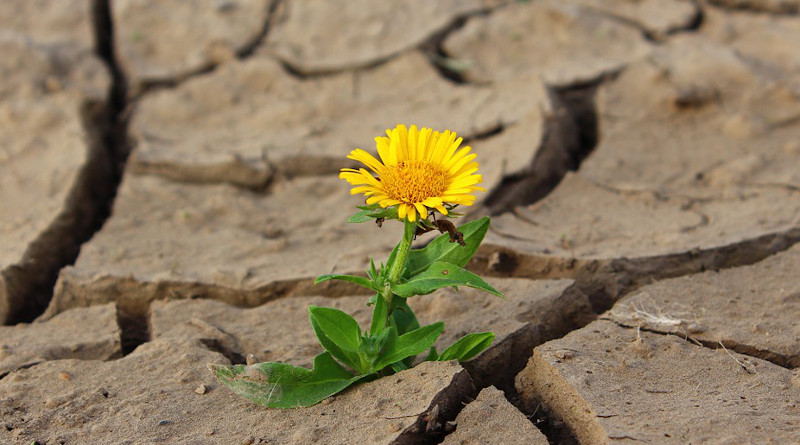Steps Towards Avoiding A Climate Catastrophe – OpEd
Threats Are Becoming More Severe
There is clear evidence that climate-related threats are becoming more severe. One can think of the record-breaking heat waves in Europe and the Americas as well as in China. One can think of drought and falling water tables, which are threatening agriculture in very many countries. And one can also think of the poles, which are warming four times faster than the remainder of the world. There is a danger that coastal cities everywhere will soon be flooded because of rapidly melting polar ice, as is discussed in my book, “Warnings from the Poles.”
What are we to do? What actions can we take to avoid a climate catastrophe? Below is a list of helpful actions that can and should be taken. Many of those listed here have long been advocated by George Monbiot, who writes a weekly environmental column for The Guardian.
Greatly Reduce Animal Husbandry
Raising animals for food has a number of very harmful impacts on the environment. For example, large areas of rainforests in the Amazon region and elsewhere have been cut down, often illegally, to make place for cattle ranching. In addition to the ecological damage produced by forest loss, cattle also produce large amounts of methane, an extremely dangerous greenhouse gas.
Feeding agricultural produce to animals and then eating the animals is an extremely inefficient way of obtaining food for humans. With global population rapidly rising, and with the available agricultural land stationary or falling, it will be necessary to shorten the food chain by eliminating the consumption of meat. Many very satisfactory meat substitutes are currently available, as is shown in this article.
Reform Agricultural Methods
A very serious problem with Green Revolution plant varieties is that they require heavy inputs of pesticides, fertilizers and irrigation. Because of this, the use of high-yield varieties contributes to social inequality, since only rich farmers can afford the necessary inputs. Monocultures, such as the Green Revolution varieties may also prove to be vulnerable to future epidemics of plant diseases, such as the epidemic that caused the Irish Potato Famine in 1845. Even more importantly, pesticides, fertilizers and irrigation all depend on the use of fossil fuels. One must therefore ask whether high agricultural yields can be maintained in the future, when fossil fuels are expected to become prohibitively scarce and expensive, and when their use ought to be banned to avoid catastrophic climate change.
Natural topsoil is rich in organic material, which contains sequestered carbon that would otherwise be present in our atmosphere in the form of greenhouse gases. In addition, natural topsoil contains an extraordinarily rich diversity of bacteria and worms that act to convert agricultural wastes from one year’s harvest into nutrients for the growth of next year’s crop. Pesticides kill these vital organisms, and make the use of artificial fertilizers necessary. Artificial chemically derived fertilizers also kill the vital topsoil organisms, and thus, paradoxically, make the soil less fertile.
Reformed agricultural methods, such as “no-till farming” can help the soil to retain its high carbon content and the community of organisms on which its fertility depends.
Get Money out of Politics
Citizens everywhere are concerned about the increasing dangers of climate change, and yet governments fail to take any effective climate action. The Keeling curve, which measures the concentration of carbon dioxide in our atmosphere, continues its steady upward trend. In the face of an obvious emergency, why do governments not act? The answer is that the votes of politicians can be bought. The fossil fuel industry is immensely rich, and therefore able to buy politicians. To achieve vitally important governmental action, we must strive to get money out of politics.
Raise Popular Awareness of the Climate Emergency
Everything possible must be done to raise popular awareness of the climate emergency. There is, of course, a danger that some people will react to alarming news by shutting the whole issue out of their heads. But we must be honest. We must tell the truth.
The Role of the Alternative Media
In general, the mass media behave as though their role is to prevent the peoples of the world from joining hands and working to save the world from thermonuclear and environmental catastrophes. The television viewer sits slumped in a chair, passive, isolated, dis-empowered and stupefied. The future of the world hangs in the balance, the fate of children and grandchildren hang in the balance, but the television viewer feels no impulse to work actively to change the world or to save it. The Roman emperors gave their people bread and circuses to numb them into political inactivity. The modern mass media seem to be playing a similar role.
Because the mass media have failed us completely, the work of alternative media like TMS Weekly Digest has become enormously important for the future of humanity and the biosphere.
John Scales Avery, Ph.D., who was part of a group that shared the 1995 Nobel Peace Prize for their work in organizing the Pugwash Conferences on Science and World Affairs, is a member of the TRANSCEND Network and Associate Professor Emeritus at the H.C. Ørsted Institute, University of Copenhagen, Denmark. He is chairman of both the Danish National Pugwash Group and the Danish Peace Academy and received his training in theoretical physics and theoretical chemistry at M.I.T., the University of Chicago and the University of London. He is the author of numerous books and articles both on scientific topics and on broader social questions. His most recent books are Information Theory and Evolution and Civilization’s Crisis in the 21st Century (pdf). Website: https://www.johnavery.info/
This article originally appeared on Transcend Media Service (TMS)

